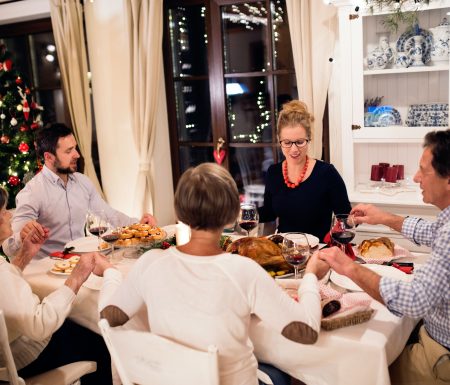Whether you’re a newlywed or an oldie-wed like me, dealing with the in-laws and outlaws can be a challenge. That’s because your in-laws have shaped every aspect of your spouse’s life…and your parents, the outlaws, have impacted yours. So when the two of you start making decisions, both of your families of origins views begin to clash. Add some unsolicited advice from your in-laws and/or outlaws, and a showdown begins brewing between the two of you. But you’re not feuding over the decision. It’s all about supporting or defending your parents.
So how should you treat your in-laws and outlaws? Well, Genesis 2:24 gives us the answer when it says you’re to leave your parents and cleave to your spouse. Leaving means you’re to run from the arms of your parents into the arms of your spouse. Cleaving means that you’re holding onto one another so tightly that nothing, including your parents, siblings or even your children can squeeze between you. The fact is, you grew up in your family of origin for just a season, and then you chose a spouse to live with for the rest of your life. You’re leaving a temporary family relationship to establish a permanent marriage, one of your own. So you need to reprioritize your relationships. Your spouse has to be the number one person in your life. Yet God commands us to honor our fathers and our mothers. And that’s still in place. So we don’t stop loving, honoring or respecting them. But you do need to establish some new relationship boundaries. What might some of those boundaries be?
Here are three suggestions:
1. If you’re sharing too many details of your marital problems with your parents, you’re out of bounds. Conflicts between couples need to be resolved privately, together as a couple. Your spouse will feel betrayed if you share intimate details of your marriage with others. In-laws or outlaws will feel they are forced to take sides. Neither of these things help bring a positive resolution to your marital issues.
2. If you’re seeking to have your emotional needs met by your parents or anyone other than your spouse, you’re out of bounds. If you’re seeking to meet the emotional needs of someone other than your spouse, you’re out of bounds. Hey, guard who feeds your heart.
3. If you’re relying too heavily on parental help to make important decisions in your marriage, you’re out of bounds. There’s no doubt that you can benefit from parental wisdom and experience. Just be sure that you’re tapping into it together as a couple and you’re making a unified decision.
Here’s a question that may help you to see if there are some boundary issues in your marriage: Are we in any way too dependent on our parents for physical, relational, emotional or financial support? If so, you probably have a boundary issue that needs to be explored. So if you’re dealing with an indoor or outdoor boundary issue, the old adage “Good fences make good neighbors” might come into play here. If in-laws or outlaws are getting too invasive or involved, it’s time to have a talk about setting some of these boundaries and once you’re established, insist they are respected.

